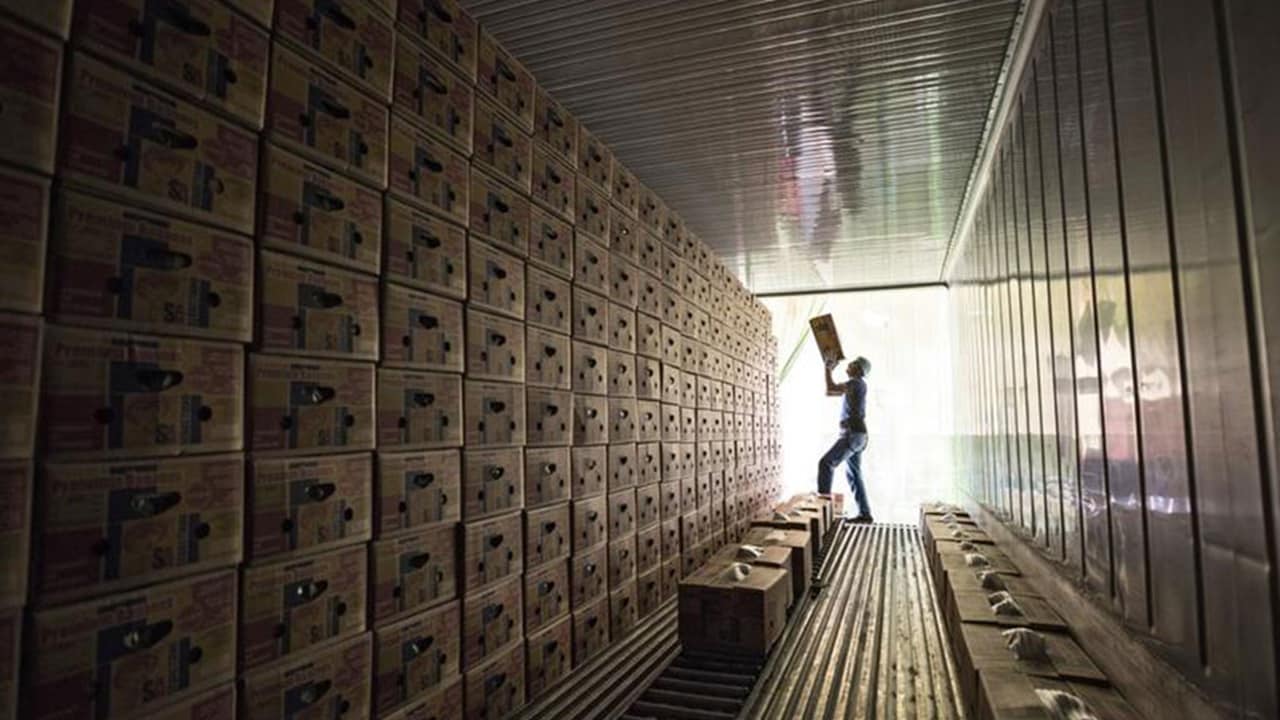Reliability is important for all businesses that ship their goods around the world. However, when it comes to refrigerated goods, an unreliable supply chain with no or low visibility can result in costly losses, with products wasted enroute to their end consumers.
Not only can this be financially devastating to companies that engage in cold chain logistics, but when we think of all of the products that the reefer industry transports, from fruits and vegetables to vaccines, this waste can have an outsize impact on the health and well-being of regions. Therefore, it is more important now than ever to integrate digitalisation to reduce waste in the reefer industry.
The problem in reefer transportation: food waste
Despite efforts by the Food and Agriculture Organisation of the United Nations (FAO) to end world hunger and malnutrition by 2030, challenges have grown during the past years of the pandemic and global political instability. The unfortunate fact is that more than one-third of the world suffers from moderate to severe food insecurity, according to an annual report released by the FAO in 2021. At the same time, there is a high degree of lost and wasted food, creating a painful disparity.
The United Nations Environment Programme's 'Worldwide Food Waste' findings report that roughly one-third of all food produced annually for human consumption is lost or wasted. Amongst those losses are common reefer container cargo, as fruits and vegetables ranked highest, with forty to fifty percent of all farmer's yields reaching the bin instead of the refrigerators of end consumers.
Of course, there are many reasons why and how food can be wasted at any point of the supply chain; enroute, in retail, or with the end consumer. Unfortunately, the FAO has been able to trace forty percent of all food waste to the supply chain itself. Obviously, in an ideal world, no food would be wasted on the journey from farms to the plates of consumers, especially when there is such a high need for food around the world. However, it is not only food that is being wasted when it comes to cold chain logistics.
The problem in cold chain logistics: medical waste
The World Health Organisation has estimated that globally up to half of all vaccines are wasted every year due to cold chain logistics issues and lack of temperature control at the final storage site. In a world where many countries are still experiencing the fatal effects of Covid-19 these wasted vaccines cost lives.
The recent Covid-19 pandemic led to a boom in vaccine demand the world over, also breeding higher degrees of complexity when it came to transporting these vaccines. Though the majority of vaccines must be transported and stored within the narrow temperature range of two to eight degrees Celsius in order to remain effective, Covid-19 vaccines required cooler-than-average temperatures for storing and transportation, ranging from minus 20 to minus 70 degrees Celsius depending on the manufacturer.
This means that reefer containers must maintain this precise temperature range from first pick-up to final drop-off and must account for the differences between different vaccines and their unique needs. This complexity can create issues when vaccines have to travel from cold to warm climates, or when they must switch modes of transport.

From life-giving food to life-saving vaccines, it is clear that achieving as little waste as possible is imperative to fuel a healthy world. So, what can be done to reduce this waste and make sure all reefer cargo can get to their end consumers intact?
The solution: digitalisation in the reefer industry & smart reefer containers
The future of reduced waste in logistics is digitalisation in the reefer industry. Firstly, Global Positioning Systems (GPS) can show businesses exactly where their shipment is in near-real time, decreasing the chances for cargo to get lost. Additionally, companies can be even more transparent with their customers and stakeholders, giving visibility as to where their shipments are at all times and when they are expected to arrive. This visibility allows for warehouses or end-storage facilities to plan accordingly, ensuring proper space for the refrigerated cargo.
Additionally, leading logistics providers have dedicated remote container management teams that can handle preventative maintenance, perform in-transit adjustments, and resolve issues for their customers should any problems arise. However, the beauty of digitalisation in the reefer industry means that if they so choose, businesses can handle many issue resolutions and in-transit temperature adjustments independently, digitally. This independence allows businesses the option of managing their cargo themselves, putting the power back into their own hands.
Digital tracking solutions allow for businesses to peer inside their reefer containers, even when they are out at sea, to observe and self-manage the conditions within. With services that can track and report temperature, humidity, CO2, and O2; businesses are able to remotely control the environment of their cargo. These remote access digital solutions allow companies and their stakeholders to take control even when their shipment is a world away.
The digitalisation of the reefer industry will ease pain points for businesses and their stakeholders, reducing waste that can lead to heavy financial consequences. Not only are there obvious financial benefits to implementing digitalisation to reduce waste in the reefer industry, but increased reliability and remote control of reefer containers has the power to both ease public health emergencies and feed our world more efficiently and sustainably.
未来,您想随时了解必读行业趋势吗?
您已经完成了,欢迎“登船”!
很抱歉,发送您的联系请求时出现问题。
请查看表单字段,确保所有已正确填写所有必填信息。如果问题仍然存在,请联系我们的支持团队以获得进一步的帮助。
未来,您想随时了解必读行业趋势吗?
使用此表格注册,即可直接在您的邮箱中接收我们的洞察见解,进入一个真正的综合物流世界。简单操作,即从我们为您量身定做的精选文章中获得启发,了解相关行业洞察信息。您可以随时取消订阅。













